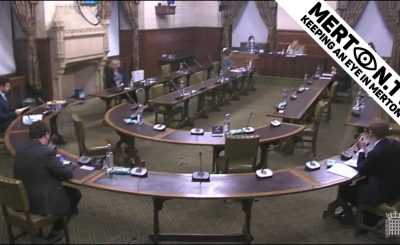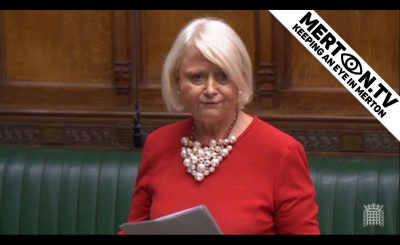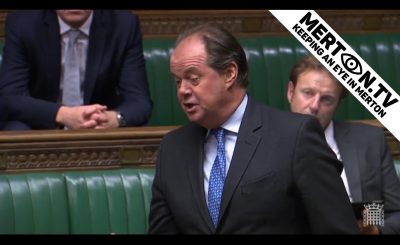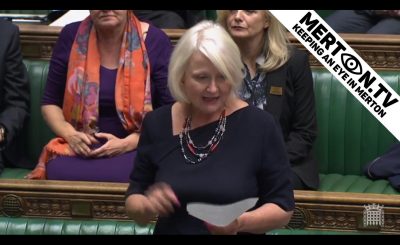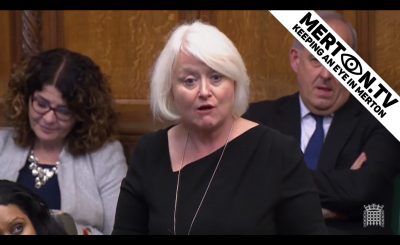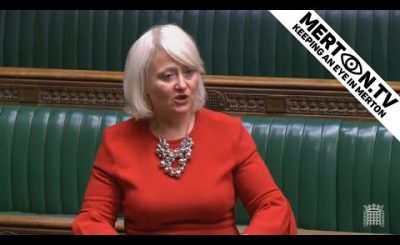Venue: House of Commons, Commons Chamber
Questions to the Secretary of State for Health and Social Care
Oral Answers to Questions
Health and Social Care
The Secretary of State was asked—
| Question | Detail |
|---|---|
| 1. | PrEP Impact Trial
Peter Kyle (Hove) (Lab) Dr Sarah Wollaston (Totnes) (Con) Matt Hancock Andy Slaughter (Hammersmith) (Lab) Matt Hancock Will Quince (Colchester) (Con) Matt Hancock Mrs Sharon Hodgson (Washington and Sunderland West) (Lab) Matt Hancock Mr Speaker |
| 2. | Future of the NHS
Jeremy Lefroy (Stafford) (Con) The Secretary of State for Health and Social Care (Matt Hancock) Jeremy Lefroy Matt Hancock Laura Smith (Crewe and Nantwich) (Lab) Matt Hancock Lucy Allan (Telford) (Con) Matt Hancock Ms Angela Eagle (Wallasey) (Lab) Matt Hancock Richard Drax (South Dorset) (Con) Matt Hancock Mr Dennis Skinner (Bolsover) (Lab) Matt Hancock |
| 3. | Toxic Air and Children’s Health
Christine Jardine (Edinburgh West) (LD) The Parliamentary Under-Secretary of State for Health and Social Care (Jackie Doyle-Price) Christine Jardine Jackie Doyle-Price Mr Barry Sheerman (Huddersfield) (Lab/Co-op) Jackie Doyle-Price Mr Speaker Andrew Bridgen (North West Leicestershire) (Con) Jackie Doyle-Price |
| 4. | Mental Health Provision
Craig Mackinlay (South Thanet) (Con) The Parliamentary Under-Secretary of State for Health and Social Care (Jackie Doyle-Price) Mr Speaker Jackie Doyle-Price Mr Speaker Craig Mackinlay Jackie Doyle-Price |
| 6. | Luke Graham (Ochil and South Perthshire) (Con) 6. What UK-wide steps is my hon. Friend taking to ensure that Scotland is not left behind in mental health provision, especially given that only two thirds of young people are referred within the 18-week timeline, against a 90% target?Jackie Doyle-Price As my hon. Friend knows, health is a devolved matter, but I am keen to share best practice with colleagues in Scotland, who face many similar challenges. In England, we will test four-week waiting times for access to NHS support in the community and we are committed to sharing that expertise, as we often do, with colleagues in Scotland.Eleanor Smith (Wolverhampton South West) (Lab) In the Government’s 10-year plan for the NHS, a growing share of the budget is promised for improving mental health services in the coming years. The mental health services in Wolverhampton are in a desperate state of underfunding now. I am receiving letters from my constituents telling me how they have to wait over a year or more to be treated. One woman told me:“I personally know people who have attempted to take their own lives, thankfully unsuccessfully… but… aftercare once discharged from hospital”is non-existent. When will people see the benefits of the 10-year plan? By the time the uplift takes place, it will be too late for some of them.Jackie Doyle-Price As we outlined in the 10-year plan, we fully recognise that there needs to be much more investment in community and crisis care, including direct access via the 111 service. By April, we will be able to put more flesh on the detail of how we will roll that out. I assure the hon. Lady that I am in no way complacent about thechallenges we face in ensuring that our mental health services are what people should expect of them.Paula Sherriff (Dewsbury) (Lab) Last week, The Guardian revealed that hospital admissions for eating disorders have surged in the last year. Meanwhile, the number of children and young people with urgent cases of eating disorders who are treated within a week has fallen, and the number of those waiting between one and four weeks has risen. If prevention is better than cure, why do so many children and adolescents with eating disorders end up in A&E? Jackie Doyle-Price Mr Simon Clarke (Middlesbrough South and East Cleveland) (Con) Jackie Doyle-Price Mr Gregory Campbell (East Londonderry) (DUP) Jackie Doyle-Price |
| 5. | Children’s Hospices
Martin Vickers (Cleethorpes) (Con) The Minister for Care (Caroline Dinenage) Martin Vickers Caroline Dinenage Gareth Snell (Stoke-on-Trent Central) (Lab/Co-op) Caroline Dinenage Jack Brereton (Stoke-on-Trent South) (Con) Caroline Dinenage Jim Shannon (Strangford) (DUP) Caroline Dinenage |
| 7. | Leaving the EU: Contingency Planning
Nick Smith (Blaenau Gwent) (Lab) Ian Murray (Edinburgh South) (Lab) The Secretary of State for Health and Social Care (Matt Hancock) Nick Smith Matt Hancock Vicky Ford (Chelmsford) (Con) Matt Hancock Ian Murray “I have type 1 diabetes, as does Theresa May, and the supplies of insulin, needles and blood testing equipment all come from Europe. Insulin is perishable. Without it, so am I.” Will the Secretary of State come to the Dispatch Box and say to my constituents that, whichever disease they have and whichever medical supplies they require, they will get them even if we leave the European Union with no deal? Would not the best thing to do be just to rule out no deal? Matt Hancock Dr Philippa Whitford (Central Ayrshire) (SNP) Matt Hancock Dr Whitford Matt Hancock Jonathan Ashworth (Leicester South) (Lab/Co-op) “despite reaching out directly to the Department of Health…we still have not seen the concrete detail needed to reassure us…we cannot say with confidence that people will be able to get the insulin and other medical supplies they need in the event of a no-deal Brexit.” Why is Diabetes UK wrong and the Secretary of State right? Matt Hancock Jonathan Ashworth On the various no-deal medicines statutory instruments that the House will debate today and on other occasions, the Government’s own impact assessments say that, in a no-deal scenario, the NHS will pay more for drugs, UK firms will face more red tape, and NHS patients will go to the back of the queue when it comes to international innovation. Given that the consequences of no deal would be so devastating for the NHS, will the Secretary of State—as, apparently, the Justice Secretary will—resign from the Government if it means blocking no deal? Matt Hancock |
| 8. | Acquired Brain Injury
Bim Afolami (Hitchin and Harpenden) (Con) Caroline Dinenage Seema Malhotra (Feltham and Heston) (Lab/Co-op) Caroline Dinenage |
| 9. | Dementia Care
Ms Marie Rimmer (St Helens South and Whiston) (Lab) The Minister for Care (Caroline Dinenage) Ms Rimmer Caroline Dinenage Huw Merriman (Bexhill and Battle) (Con) Caroline Dinenage Stephen Lloyd (Eastbourne) (Ind) Caroline Dinenage Mr Philip Hollobone (Kettering) (Con) Caroline Dinenage |
| 10. | Social Care Green Paper
Giles Watling (Clacton) (Con) The Minister for Care (Caroline Dinenage) Giles Watling Caroline Dinenage Mr Speaker Kate Hollern (Blackburn) (Lab) Mr Speaker Caroline Dinenage Mr Chris Leslie (Nottingham East) (Ind) Caroline Dinenage Barbara Keeley (Worsley and Eccles South) (Lab) Caroline Dinenage |
| 11. | Health and Social Care Sector Workforce
Gavin Newlands (Paisley and Renfrewshire North) (SNP) The Minister for Health (Stephen Hammond) Gavin Newlands Stephen Hammond Mr Speaker Derek Thomas (St Ives) (Con) Stephen Hammond Justin Madders (Ellesmere Port and Neston) (Lab) Stephen Hammond |
| 12. | Sudden Cardiac Arrest
Maria Caulfield (Lewes) (Con) The Parliamentary Under-Secretary of State for Health and Social Care (Jackie Doyle-Price) Maria Caulfield Jackie Doyle-Price |
| 13. | Mental Health Patient Waiting Times: North-West
Alison McGovern (Wirral South) (Lab) The Parliamentary Under-Secretary of State for Health and Social Care (Jackie Doyle-Price) Alison McGovern Jackie Doyle-Price There have been problems with the improving access to psychological therapies programme and with recovery targets in the past. The Wirral CCG has told me that the backlog of more than 1,000 patients has been cleared after it provided additional funds and that the IAPT targets are now being met, but obviously I will keep the position under review, and I thank the hon. Lady for raising the issue. |
| 14. | NHS Hospital Parking Charges
Robert Halfon (Harlow) (Con) The Minister for Health (Stephen Hammond) Robert Halfon Stephen Hammond |
| Topical | Topical Questions
Tommy Sheppard (Edinburgh East) (SNP) The Secretary of State for Health and Social Care (Matt Hancock) Tommy Sheppard Matt Hancock James Heappey (Wells) (Con) Matt Hancock Neil Coyle (Bermondsey and Old Southwark) (Lab) Matt Hancock Dr Sarah Wollaston (Totnes) (Con) The Minister for Care (Caroline Dinenage) Peter Kyle (Hove) (Lab) Matt Hancock Giles Watling (Clacton) (Con) Matt Hancock Toby Perkins (Chesterfield) (Lab) Matt Hancock Tom Tugendhat (Tonbridge and Malling) (Con) The Minister for Health (Stephen Hammond) Stephen Timms (East Ham) (Lab) The Parliamentary Under-Secretary of State for Health and Social Care (Jackie Doyle-Price) Paul Masterton (East Renfrewshire) (Con) Matt Hancock Bill Esterson (Sefton Central) (Lab) Jackie Doyle-Price Royston Smith (Southampton, Itchen) (Con) Matt Hancock Louise Haigh (Sheffield, Heeley) (Lab) Jackie Doyle-Price David Tredinnick (Bosworth) (Con) Matt Hancock Rosie Cooper (West Lancashire) (Lab) Stephen Hammond Ben Bradley (Mansfield) (Con) Stephen Hammond Stephen Morgan (Portsmouth South) (Lab) Matt Hancock Mr Mark Francois (Rayleigh and Wickford) (Con) Matt Hancock Carol Monaghan (Glasgow North West) (SNP) Matt Hancock Mark Pawsey (Rugby) (Con) Matt Hancock |
0:40:20 Q11. What steps he is taking to ensure a sustainable workforce in the health and social care sector. (909311)
0:40:25 Stephen Hammond MP, Minister of State (Department of Health and Social Care) (Wimbledon, Conservative)
0:40:48 Gavin Newlands MP (Paisley and Renfrewshire North, Scottish National Party)
0:41:20 Stephen Hammond MP, Minister of State (Department of Health and Social Care) (Wimbledon, Conservative)
0:42:00 Derek Thomas MP (St Ives, Conservative)
0:42:30 Stephen Hammond MP, Minister of State (Department of Health and Social Care) (Wimbledon, Conservative)
0:42:45 Justin Madders MP (Ellesmere Port and Neston, Labour)
0:43:10 Stephen Hammond MP, Minister of State (Department of Health and Social Care) (Wimbledon, Conservative)
0:43:35 Q12. What steps his Department is taking to improve survival rates from sudden cardiac arrest. (909314)
0:43:40 Jackie Doyle-Price MP, The Parliamentary Under-Secretary for Health and Social Care (Thurrock, Conservative)
0:44:10 Maria Caulfield MP (Lewes, Conservative)
0:44:25 Jackie Doyle-Price MP, The Parliamentary Under-Secretary for Health and Social Care (Thurrock, Conservative)
0:45:04 Q13. What steps his Department is taking to reduce waiting times for mental health patients in the North West. (909315)
0:45:10 Jackie Doyle-Price MP, The Parliamentary Under-Secretary for Health and Social Care (Thurrock, Conservative)
0:45:34 Alison McGovern MP (Wirral South, Labour)
0:46:13 Jackie Doyle-Price MP, The Parliamentary Under-Secretary for Health and Social Care (Thurrock, Conservative)
0:47:01 Q14. What plans he has to allocate additional funding to NHS hospitals to replace revenue raised by car parking charges. (909316)
0:47:08 Stephen Hammond MP, Minister of State (Department of Health and Social Care) (Wimbledon, Conservative)
0:47:30 Rt Hon Robert Halfon MP (Harlow, Conservative)
0:47:55 Stephen Hammond MP, Minister of State (Department of Health and Social Care) (Wimbledon, Conservative)
0:48:15 Topical Questions to the Secretary of State for Health and Social Care
0:48:18 Rt Hon Matt Hancock MP, Secretary of State for Health and Social Care (West Suffolk, Conservative)
0:48:54 Tommy Sheppard MP (Edinburgh East, Scottish National Party)
0:49:31 Rt Hon Matt Hancock MP, Secretary of State for Health and Social Care (West Suffolk, Conservative)
0:49:50 James Heappey MP (Wells, Conservative)
0:50:13 Rt Hon Matt Hancock MP, Secretary of State for Health and Social Care (West Suffolk, Conservative)
0:50:38 Neil Coyle MP (Bermondsey and Old Southwark, Labour)
0:51:00 Rt Hon Matt Hancock MP, Secretary of State for Health and Social Care (West Suffolk, Conservative)
0:51:14 Dr Sarah Wollaston MP (Totnes, Conservative)
0:51:42 Caroline Dinenage MP, Minister of State (Department of Health and Social Care) (Gosport, Conservative)
0:52:11 Peter Kyle MP (Hove, Labour)
0:52:28 Rt Hon Matt Hancock MP, Secretary of State for Health and Social Care (West Suffolk, Conservative)
0:52:46 Giles Watling MP (Clacton, Conservative)
0:53:04 Rt Hon Matt Hancock MP, Secretary of State for Health and Social Care (West Suffolk, Conservative)
0:53:22 Toby Perkins MP (Chesterfield, Labour)
0:53:42 Rt Hon Matt Hancock MP, Secretary of State for Health and Social Care (West Suffolk, Conservative)
0:54:20 Tom Tugendhat MP (Tonbridge and Malling, Conservative)
0:54:44 Stephen Hammond MP, Minister of State (Department of Health and Social Care) (Wimbledon, Conservative)
0:55:15 Rt Hon Stephen Timms MP (East Ham, Labour)
0:55:42 Jackie Doyle-Price MP, The Parliamentary Under-Secretary for Health and Social Care (Thurrock, Conservative)
0:56:20 Paul Masterton MP (East Renfrewshire, Conservative)
0:56:41 Rt Hon Matt Hancock MP, Secretary of State for Health and Social Care (West Suffolk, Conservative)
0:57:06 Bill Esterson MP (Sefton Central, Labour)
0:57:38 Jackie Doyle-Price MP, The Parliamentary Under-Secretary for Health and Social Care (Thurrock, Conservative)
0:58:07 Royston Smith MP (Southampton, Itchen, Conservative)
0:58:32 Rt Hon Matt Hancock MP, Secretary of State for Health and Social Care (West Suffolk, Conservative)
0:58:56 Louise Haigh MP (Sheffield, Heeley, Labour)
0:59:15 Jackie Doyle-Price MP, The Parliamentary Under-Secretary for Health and Social Care (Thurrock, Conservative)
0:49:41 David Tredinnick MP (Bosworth, Conservative)
0:59:52 Rt Hon Matt Hancock MP, Secretary of State for Health and Social Care (West Suffolk, Conservative)
1:00:25 Rosie Cooper MP (West Lancashire, Labour)
1:00:53 Stephen Hammond MP, Minister of State (Department of Health and Social Care) (Wimbledon, Conservative)
1:01:15 Ben Bradley MP (Mansfield, Conservative)
1:01:32 Stephen Hammond MP, Minister of State (Department of Health and Social Care) (Wimbledon, Conservative)
1:01:48 Stephen Morgan MP (Portsmouth South, Labour)
1:02:05 Rt Hon Matt Hancock MP, Secretary of State for Health and Social Care (West Suffolk, Conservative)
1:02:35 Rt Hon Mark Francois MP (Rayleigh and Wickford, Conservative)
1:03:18 Rt Hon Matt Hancock MP, Secretary of State for Health and Social Care (West Suffolk, Conservative)
1:03:52 Carol Monaghan MP (Glasgow North West, Scottish National Party)
1:04:13 Rt Hon Matt Hancock MP, Secretary of State for Health and Social Care (West Suffolk, Conservative)
1:04:29 Mark Pawsey MP (Rugby, Conservative)
1:04:46 Rt Hon Matt Hancock MP, Secretary of State for Health and Social Care (West Suffolk, Conservative)

